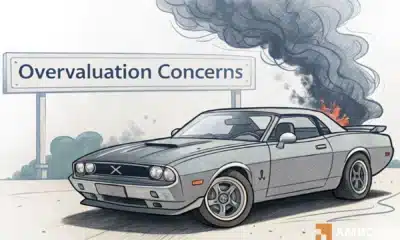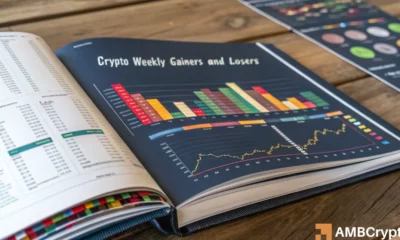A sign of ‘doing things right’ – Here’s Buterin’s take on Ethereum’s EIP-1559

After the much-anticipated London hard fork, Ethereum is now well and truly on its way to “The Merge.” In fact, according to Ethereum co-founder Vitalik Buterin, the network is now “at the finish line to the Merge.” Especially since there is nothing else as monumental as EIP-1559 in its way anymore.
EIP-1559 is pivotal to the Ethereum ecosystem going forward, with the same expected to reduce gas fee predictability. While it’s perhaps too soon to judge it a success, according to the exec, it proved that Ethereum is capable of making big changes.
During a recent interview with Bankless, Buterin argued,
“EIP-1559, in addition to both, correctly proving out the burn and correctly proving that it managed to actually really increase the user experience efficiency of sending transactions.”
Now, even though in Buterin’s experience transacting on the network has been “easier” after the deployment of the protocol, some disagree. In fact, some have called it a “parasitic tax” that is driving decentralized applications [DApps] to other networks for short-term deflationary effects.
Is EIP-1559 a parasitic tax on the Ethereum apps ecosystem, in effect driving apps to other networks for the sake of short term deflationary effects?
— Willy Woo (@woonomic) September 15, 2021
Prominent chartist Willy Woo recently conducted a poll on the same, with the results mainly mixed.
These doubts have only gathered steam of late, given the popularity and growth of some alternatives to the layer-2 scaling solution like Solana incompatible with the Ethereum Virtual Machine [EVM].
Ethereum has been striving to scale but has faced network congestion clubbed with high gas fees in return. Instead of making the gas fees predictable, some traders are still complaining about it. The current market is mainly seeing other products like NFTs, DApps, and yield farming drive the usage on the Ethereum network. Alas, network fees have hit 100-200 Gwei a few times.
Curiously, as per Etherscan, the average gas fee on the network, at press time, was 64 Gwei. This was relatively low.
What’s more, according to Buterin, the network has become scalable by a factor of five since its launch. The same has fueled a hike in fees, in a way.
EIP-1559 is supposed to work on predicting the gas fee. However, this prediction will be irrelevant if users still see high gas fees during times of network congestion.
Although gas fees remain an issue across the network, Buterin was quick to clarify that the narrative has changed.
“It feels so long ago, but even as late as at the beginning of 2020 – It was still a common Bitcoin maximalist position that a “merge may never happen.” But since then, they have moved to other arguments. Like,, they even just embraced the whole like “you know proof of stake will happen but it’s bad.”
Buterin concluded by stating,
“When you make enough progress to force other people to shift their narrative that’s definitely a sign that you are doing things right.”






